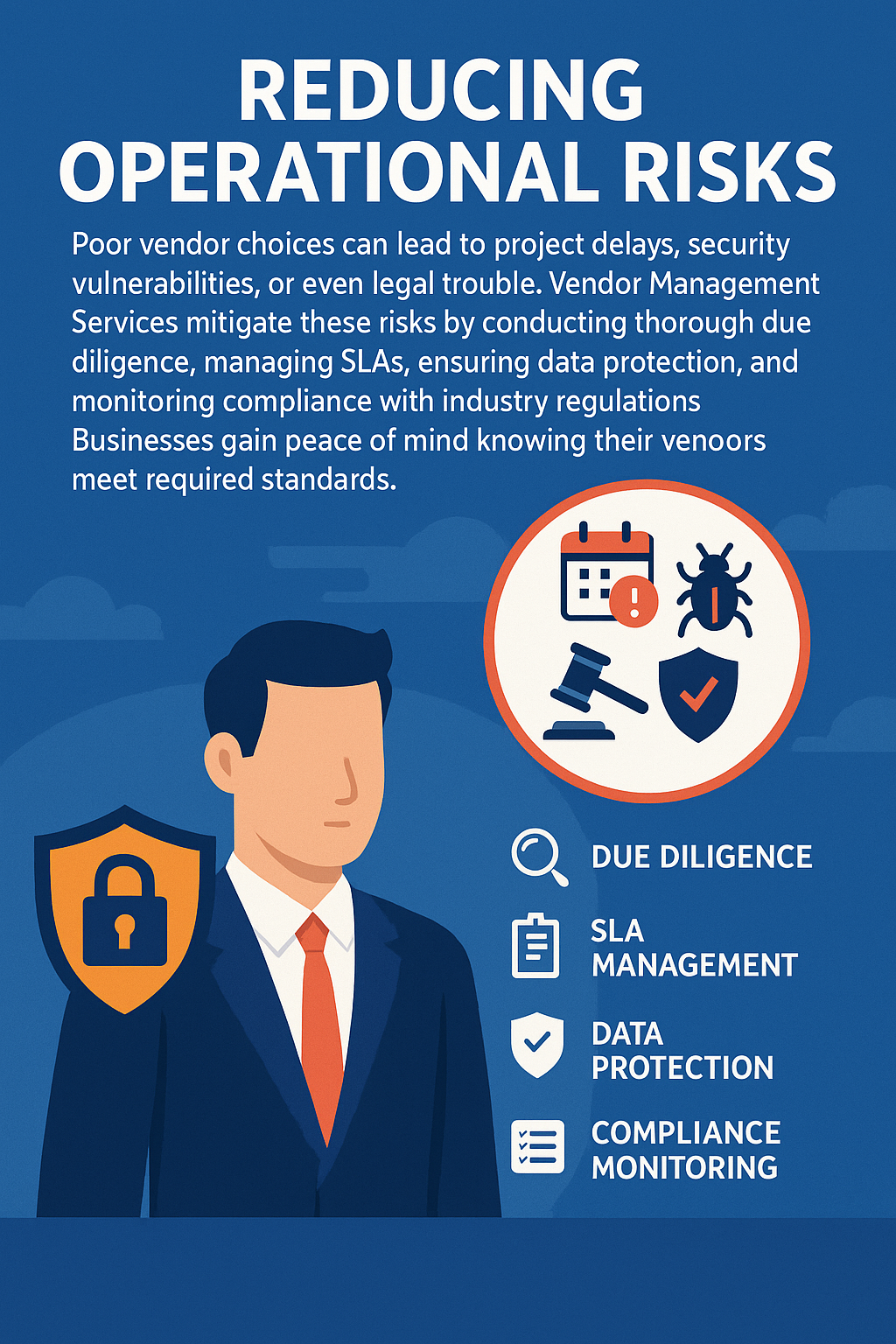The Strategic Value of Vendor Management Services for US Companies;
In today’s fast-paced business environment, US companies increasingly rely on third-party vendors for critical operations, technology, and services. However, poor vendor choices can expose organizations to significant operational risks, including project delays, security vulnerabilities, and even legal trouble. Effective Vendor Management Services (VMS) are essential for mitigating these risks and ensuring business continuity.
The Risks of Poor Vendor Choices
Selecting the wrong vendor can have far-reaching consequences:
- Project Delays: Inadequate vendor performance can stall timelines and disrupt deliverables.
- Security Vulnerabilities: Vendors with weak data protection protocols may expose your business to cyber threats and data breaches.
- Legal and Compliance Issues: Non-compliance with industry regulations or contractual obligations can result in costly penalties and reputational damage.
How Vendor Management Services Reduce Risk
1. Thorough Due Diligence
Vendor Management Services conduct comprehensive background checks, assessing financial stability, reputation, security controls, and compliance with regulatory standards. This process helps identify potential red flags before entering into agreements, ensuring vendors are reliable and trustworthy.
2. Service Level Agreement (SLA) Management
Clear, measurable SLAs set expectations for performance, timelines, and quality. VMS ensures these agreements are not only established but also regularly reviewed and enforced, holding vendors accountable and providing a framework for addressing issues proactively.
3. Data Protection and Security
With data breaches on the rise, VMS scrutinizes vendor security practices, requiring adherence to industry frameworks such as NIST, ISO 27001, or SOC 2. Continuous monitoring ensures that vendors maintain robust data protection measures, reducing the risk of cyber incidents.
4. Regulatory Compliance Monitoring
US regulators are placing increased emphasis on vendor management, particularly in sectors like finance and healthcare. VMS monitors vendor compliance with relevant laws and industry regulations, helping companies avoid legal pitfalls and maintain a strong compliance posture.
5. Ongoing Performance and Risk Monitoring
Vendor Management Services don’t stop at onboarding. They implement continuous performance reviews, using key performance indicators (KPIs) and risk-tiering strategies to catch emerging issues early. High-risk vendors are subject to more frequent assessments, and contingency plans are developed to address potential disruptions.
Building Vendor Relationships for Long-Term Success
Beyond risk mitigation, effective vendor management fosters strong, collaborative relationships. Open communication, mutual value creation, and regular engagement help vendors align more closely with your business goals, driving innovation and efficiency.
Conclusion
For US-based companies, robust Vendor Management Services are not just a safeguard—they are a strategic asset. By conducting due diligence, managing SLAs, enforcing data protection, and ensuring regulatory compliance, VMS provides peace of mind and enables businesses to focus on growth, knowing their vendor ecosystem meets the highest standards







